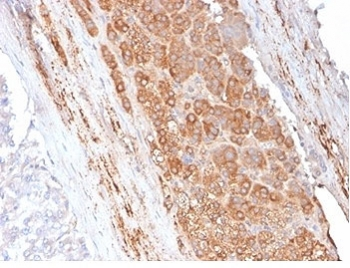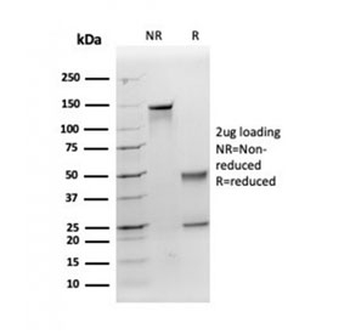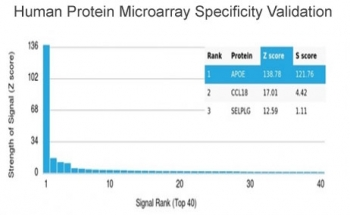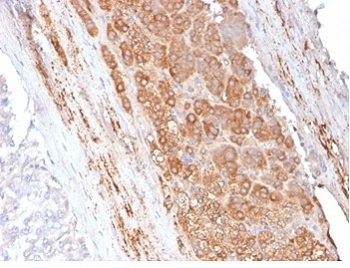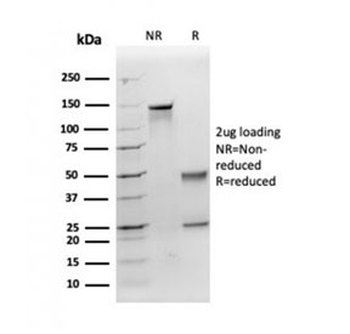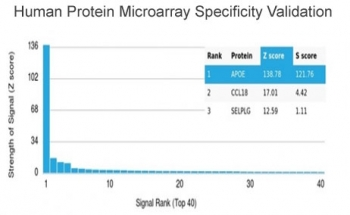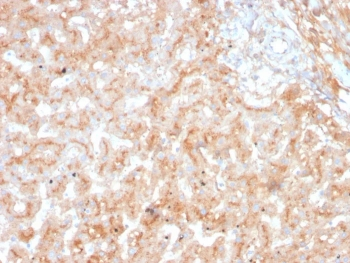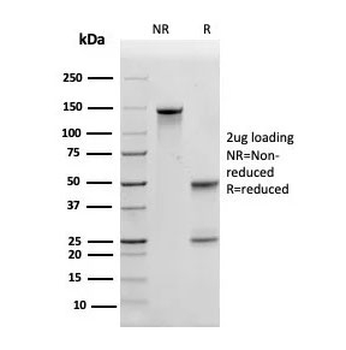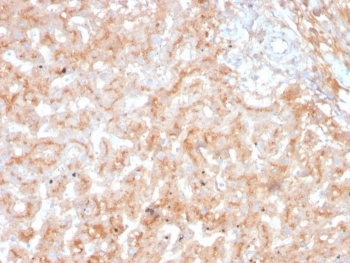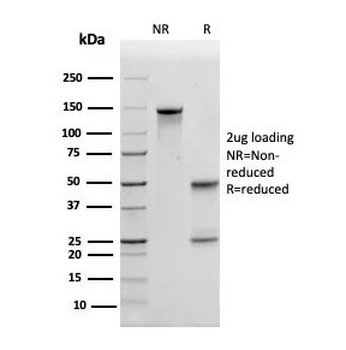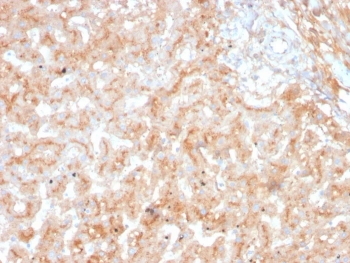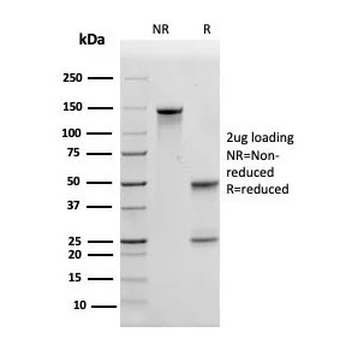You have no items in your shopping cart.
Apolipoprotein E Antibody / APOE
Catalog Number: orb2635401
| Catalog Number | orb2635401 |
|---|---|
| Category | Antibodies |
| Description | APOE is an apolipoprotein, a protein associating with lipid particles, that mainly functions in lipoprotein-mediated lipid transport between organs via the plasma and interstitial fluids. [UniProt] |
| Species/Host | Mouse |
| Clonality | Monoclonal |
| Clone Number | APOE/3671 |
| Tested applications | IHC-P |
| Reactivity | Human |
| Isotype | Mouse IgG1, kappa |
| Immunogen | A portin of amino acids 19-119 from the human protein was used as the immunogen for the Apolipoprotein E antibody. |
| Antibody Type | Primary Antibody |
| Dilution range | Immunohistochemistry (FFPE): 1-2ug/ml |
| Conjugation | Unconjugated |
| Formula | 0.2 mg/ml in 1X PBS with 0.1 mg/ml BSA (US sourced), 0.05% sodium azide |
| Hazard Information | This Apolipoprotein E antibody is available for research use only. |
| UniProt ID | P02649 |
| Storage | Maintain refrigerated at 2-8°C for up to 2 weeks. For long term storage store at -20°C in small aliquots to prevent freeze-thaw cycles. |
| Note | For research use only |
| Application notes | Optimal dilution of the Apolipoprotein E antibody should be determined by the researcher. |
| Expiration Date | 12 months from date of receipt. |

IHC staining of FFPE human liver tissue with Apolipoprotein E (clone APOE) antibody (clone APOE/3671). HIER: boil tissue sections in pH9 10mM Tris with 1mM EDTA for 20 min and allow to cool before testing.

IHC staining of FFPE human adrenal gland with Apolipoprotein E antibody (clone APOE/3671). HIER: boil tissue sections in pH9 10mM Tris with 1mM EDTA for 20 min and allow to cool before testing.
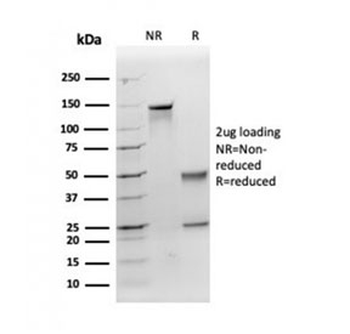
SDS-PAGE analysis of purified, BSA-free Apolipoprotein E antibody (clone APOE/3671) as confirmation of integrity and purity.
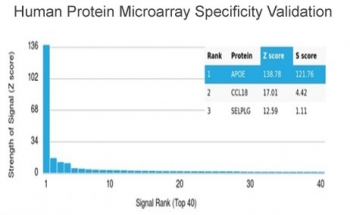
Analysis of HuProt (TM) microarray containing more than 19000 full-length human proteins using Apolipoprotein E antibody (clone APOE/3671). These results demonstrate the foremost specificity of the APOE/3671 mAb. Z- and S- score: The Z-score represents the strength of a signal that an antibody (in combination with a fluorescently-tagged anti-IgG secondary Ab) produces when binding to a particular protein on the HuProt (TM) array. Z-scores are described in units of standard deviations (SD's) above the mean value of all signals generated on that array. If the targets on the HuProt (TM) are arranged in descending order of the Z-score, the S-score is the difference (also in units of SD's) between the Z-scores. The S-score therefore represents the relative target specificity of an Ab to its intended target.



